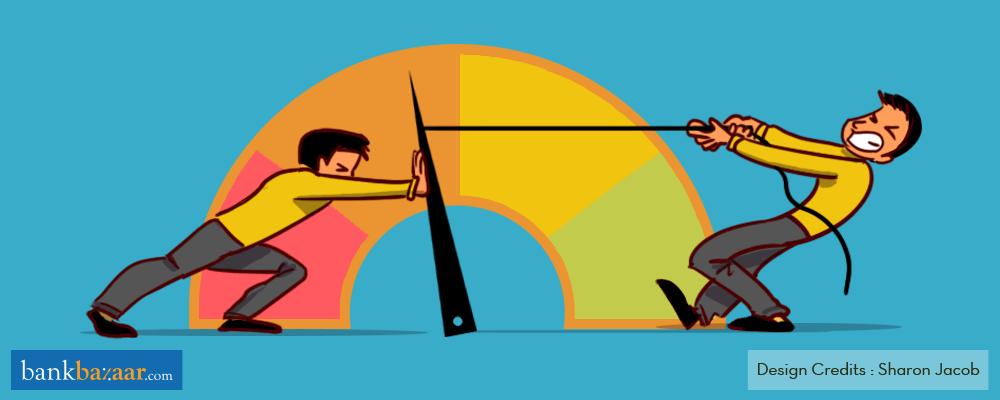Maintaining a clean Credit Report is necessary for your financial health in the long run. Learn how to clear credit issues from your Credit Report the right way.

Forgot to pay your Credit Card bill or loan EMI? Beware! Late payments and missed payments are the biggest threats to your credit health. Late payments in your Credit Report can lower your Credit Score, making it difficult for you to get a loan or increase your Credit Card limit later in life. Hence, you need to practice good financial discipline if you own a Credit Card or take a loan.
Wondering what a Credit Report is? It is basically your report card for credit, just like your school report card. It is issued by credit bureaus (there are three credit bureaus in India – CIBIL, Equifax and Experian). Your Credit Report contains information about the Credit Cards and loans that you own and your repayment history. Financial lenders usually scrutinize your Credit Report before deciding whether they should extend their services to you. In short, your Credit Report is your key to good financial health and you should review it often. Click to get your Experian Credit Report for FREE.
Coming back to the issue we were addressing – late repayments. So, what is a late payment? Let us understand this better with an example. Let’s say Rahul has a Credit Card and his payment due date is on the 1st of every month. Now, if Rahul makes the bill payment on the 2nd or any day after, then his payment is considered to be a late payment. The amount needs to be credited by the 1st. Essentially, your monthly due amount needs to be credited to the card account by the due date.
FYI – Delaying a payment once has a lower impact on your Credit Score compared to defaulting multiple times. The more you default, the more difficult it becomes to rebuild your Credit Score.
Late payments are usually a result of either the borrower forgetting the due date or a wilful default. Whatever may be the reason, your credit report will consider it a late payment. Bureaus rely on banks and other financial institutions for credit information. So, if your lender has updated your account with a late payment, then the bureau’s report will capture the same.
So, how can you remove these late payments from your Credit Report? Before considering these options, keep in mind that late payments are not usually favoured by lenders. It will be a difficult task to convince them to strike off this remark from your Credit Report.
- First and foremost, you have to get a copy of your report. Once you have received it, you should check it for errors and inaccurate information, including late payments.
- If you have defaulted a payment because you forgot the due date, you can request your lender to strike it off on the basis of goodwill. This is commonly referred to as ‘goodwill adjustment’. Your lender is likely to consider this adjustment if your repayment history has been good, apart from this one-time default. Remember that it is solely the lender’s decision to consider your request or not.
- Sometimes, lenders may require some form of assurance from your part before they consider striking off your late payment record. They often request you to sign up with their bank for auto-debit towards payment, so you don’t default again.
- You could also request the lender to remove the late payment remark from your report by agreeing to either make a partial or full payment towards your outstanding amount.
Additional Reading: Tips To Improve Your Credit Score
Once you have requested your lender to strike off the late payment remarks from your Credit Report, you must follow up on the same. If your lender accepts your request, remember that it can take up to a month (or even longer) for the updated data to appear on your report. Ensure that you call for your Credit Report and check the details periodically to understand and manage your credit information.
I want clear over dues payment of credit card
Hi Yashwant,
A Credit Card can become a potential threat to your finances only if you use it recklessly. And by reckless usage, we mean maxing your card out, paying only the minimum due, not paying your dues at all, and not making payments on time.
A few simple steps to use your Credit Card responsibly are paying your bills in full and on time, not exhausting your Credit Card limit, and not missing payment deadlines. With these tips, I am sure you will clear your Credit Card dues in no time. Hope this addresses your concern!
Cheers,
Team BankBazaar